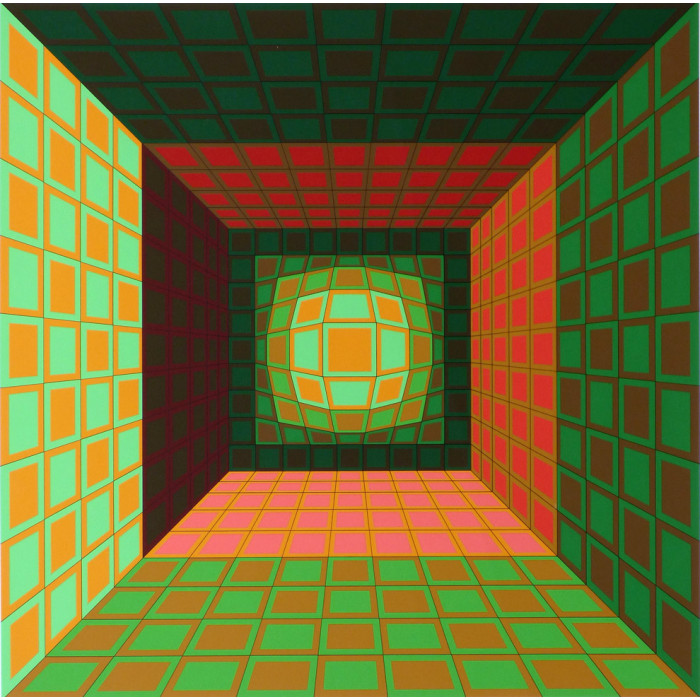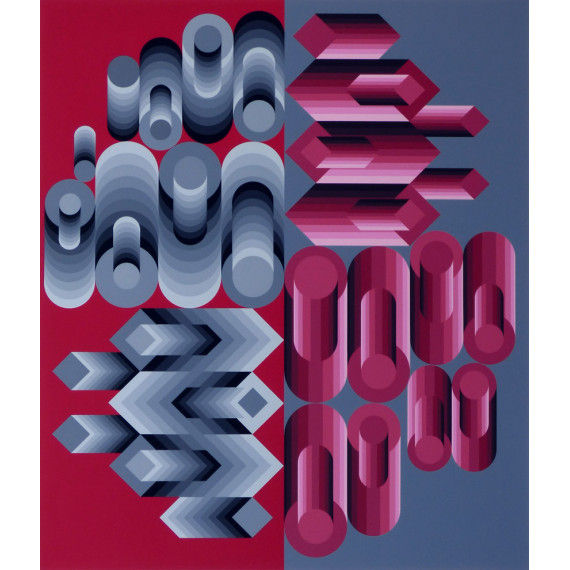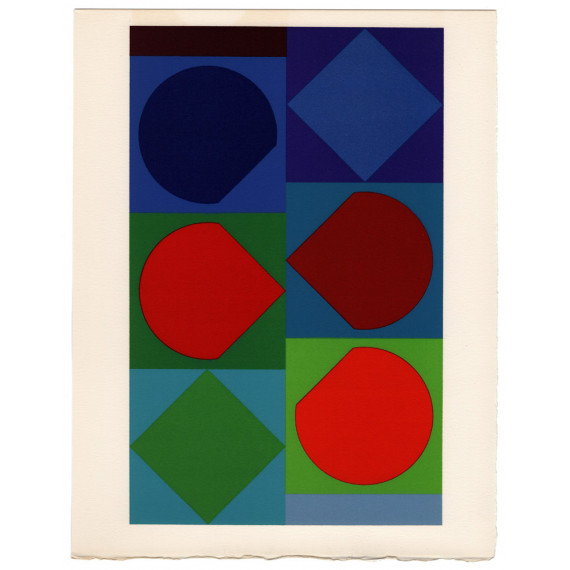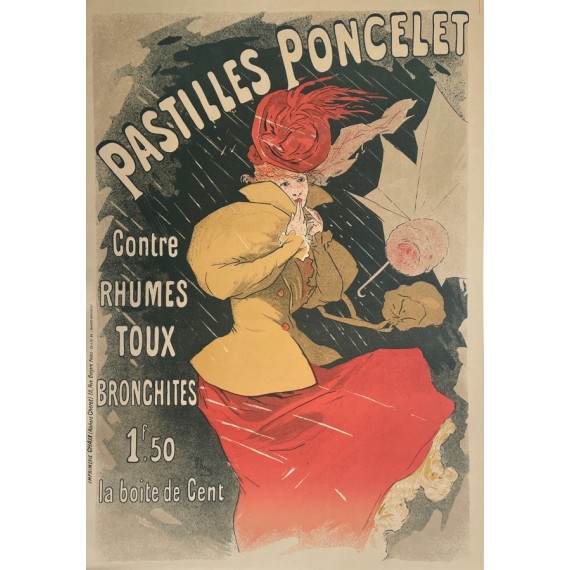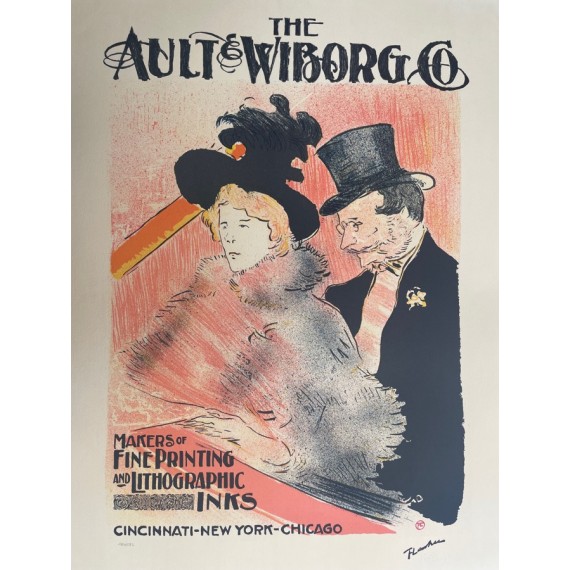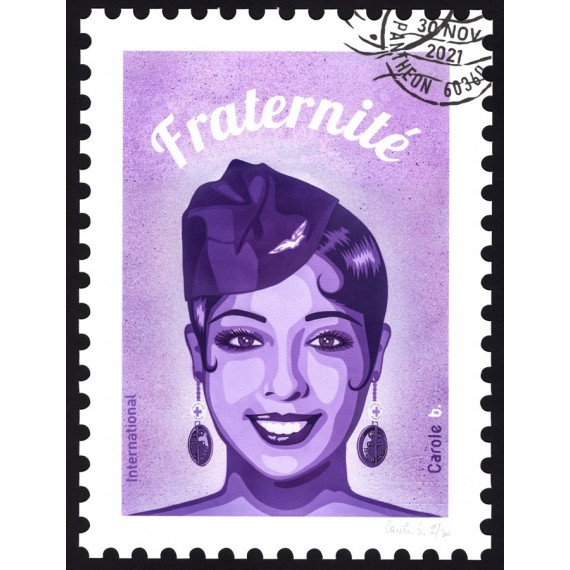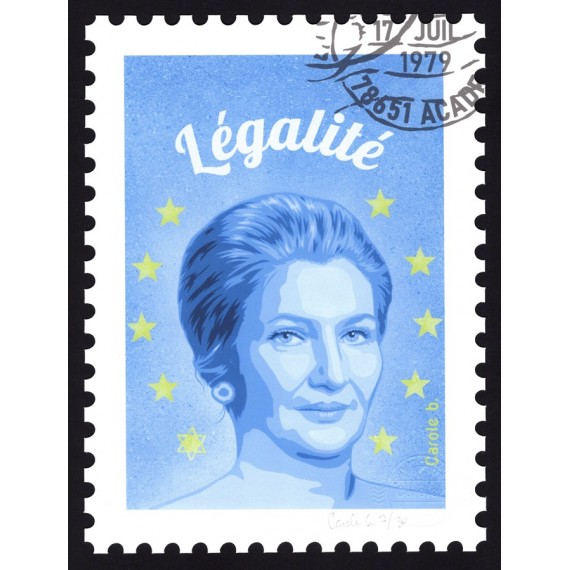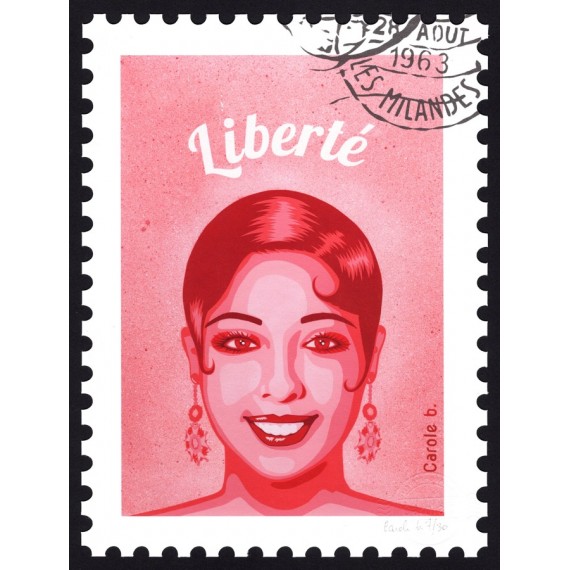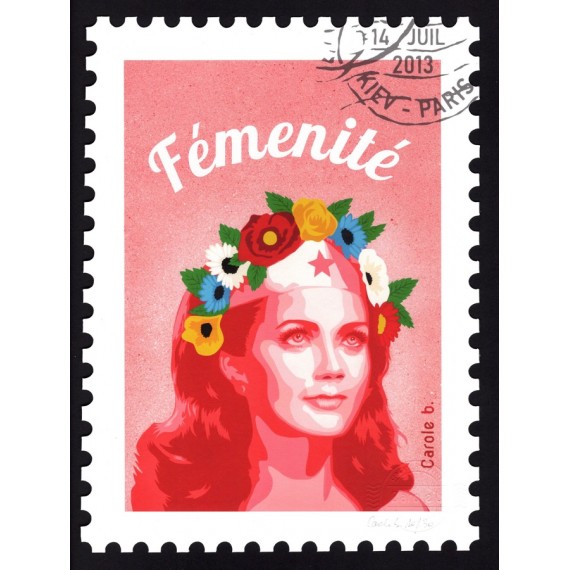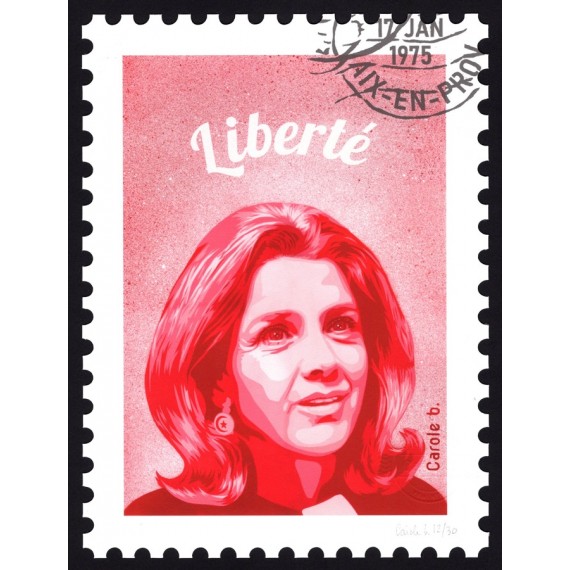Victor Vasarely
Original lithograph
86 x 76 cm
One of 250 proofs of the limited edition on Arches paper, signed by the artist, 1980.
Original lithograph.
Vasarely was born in 1906 in Pécs (Austria-Hungary) and died in 1997 in Paris. He is a Hungarian plastic artist, naturalized French in 1961, recognized as being the father of optical art.
Victor Vasarely began studying medicine, which he stopped after two years. He then became interested in the Bauhaus and studied at Műhely de Sándor Bortnyik in Budapest from 1929 to 1930. In 1930, he moved to Arcueil with his wife. He began as a graphic artist in advertising agencies. Already very gifted for visual effects, passionate about science, Victor Vasarely discovers the existence of microphotography: “What really interests him is getting into the heart of the matter, he almost already sees a atomic explosion ”, underlines Michel Gauthier curator of the Center Pompidou. The artist will then create montages and collages of photographs. He is interested in the depths of matter, in the movement of the atom, but very quickly he will pass from the microcosm to the macrocosm and will be interested in the infinitely large ”. Desiring to bring art out of museums to invest in public space, Vasarely embarked on a vast process of secularization: he redefined the methods of conception and production of his works in order to allow a wider social dissemination. Vasarely's work was omnipresent in France in the 60s and 70s: Renault logo, graphics from the Gamllimard “Tel” collection, David Bowie record cover, RTL facade, Montparnasse station fresco, TV set Michel Drucker, film set, several decorations of buildings in Paris and of a low-cost housing in Meaux, facade of a college in Dole… Infinite circles and squares, vibrant colors, hypnotic forms, impression of three-dimensional volumes … The work of Victor Vasarely is a true sensory experience, almost bodily, which draws our gaze. He will have marked the history of art as a representative of op art.

